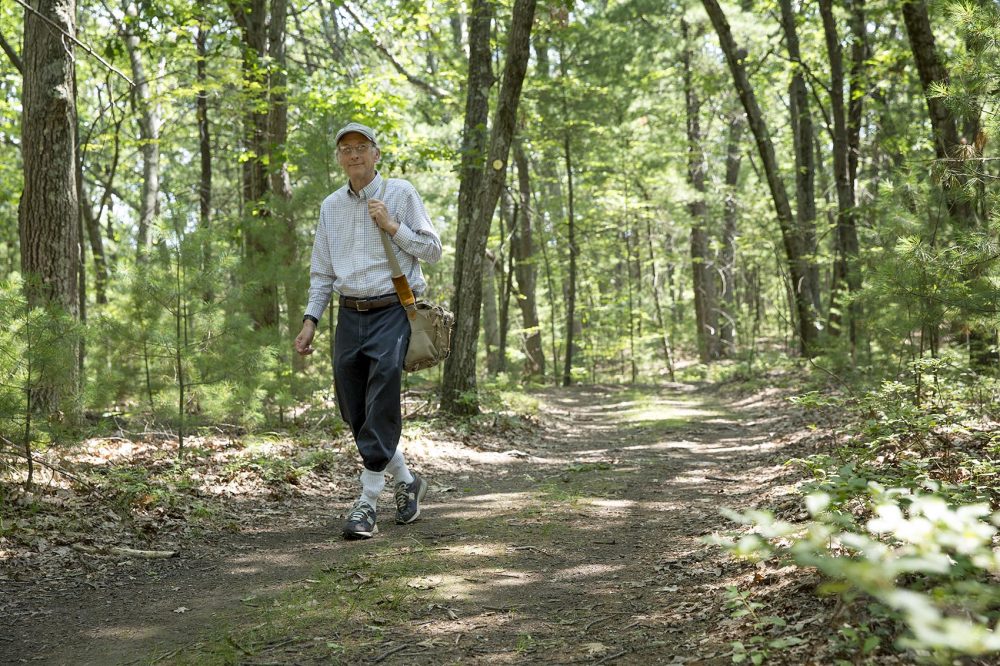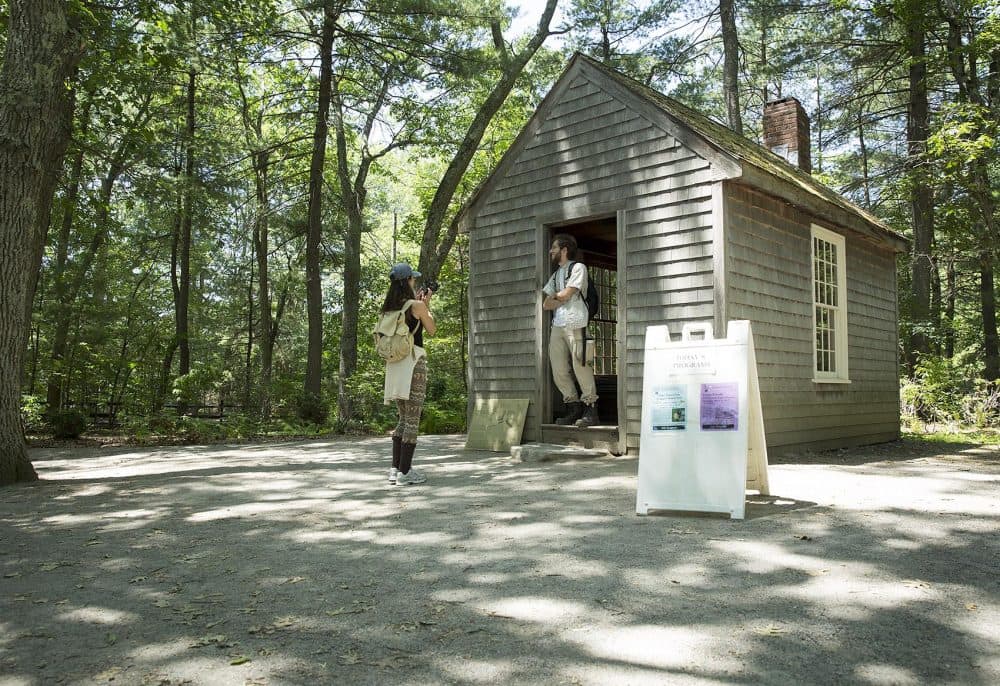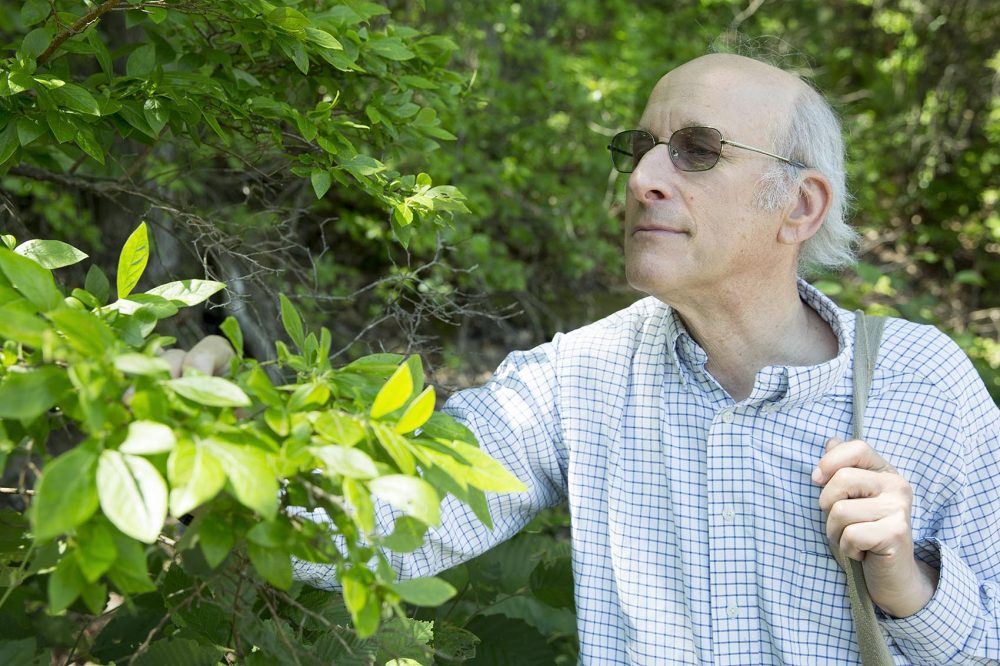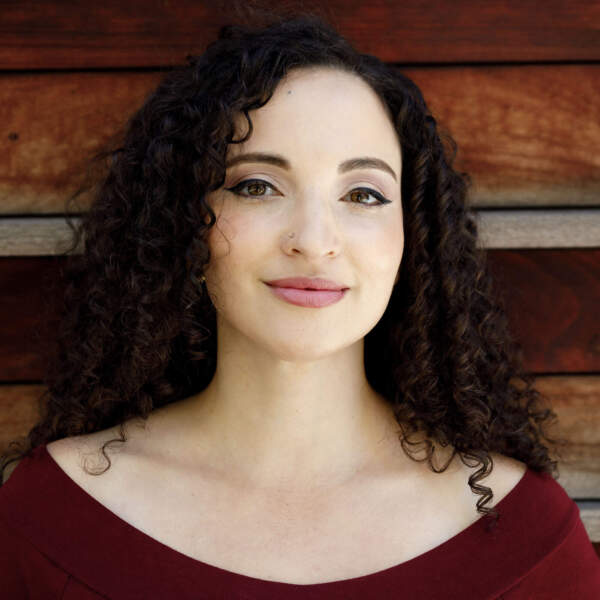Advertisement
Climate Change in Mass.
How Thoreau Helped Make Walden Pond One Of The Best Places To Study Climate Change In The U.S.
Resume
Today is the 200th birthday of author, activist and abolitionist Henry David Thoreau.
Thoreau's individualist views and distaste for government make him a hero to many people across the political spectrum. But it's his role as a naturalist and an avid record-keeper that makes him a hero to many scientists. His notes are helping scientists like Boston University biology professor Richard Primack study climate change.
We met Primack on a recent warm and sunny morning at Walden Pond, where as we headed out for a walk he ticked off some of the plant species that have disappeared in this area since Thoreau wrote about them in his 1850s book titled "Walden."
“Canna lilies, fringed orchids, lady's tresses, buckbeans, trilliums, bush clovers, mountain mint, purple bladderwort...”
Twenty-five percent of all the plants Thoreau documented during his two years living in his tiny cabin at Walden Pond are completely gone. Primack says another third are declining.

"We know that climate change is partially responsible. A lot of the species that have declined the most are the cold-loving, northern wild flowers," Primack says. "For example, the purple fringed orchids used to be common in river meadows in Concord. Now we only saw one plant in one year."
Primack spends a lot of time at Walden Pond, documenting what plants are around and their flowering times. He then compares them to Thoreau’s notes.
"When we started this work 15 years ago, there were no good examples of the effects of climate change on biological systems anywhere in these United States," he says. "For the last 15 years we’ve been using Thoreau’s records to look for the effects of climate change. And now, this area of Concord, Massachusetts, we have the best evidence for climate change, the effects of climate change, from probably anywhere in the United States.”
In the winter of 1857, Thoreau wrote:
"As I stood on Walden, drinking at a puddle on the ice, which was probably two feet think, and thinking how lucky I was that I had not got to cut through all that thickness."
Primack says this short passage says a lot about our changing climate.
"It describes that the ice was very thick in Walden in February," Primack says. "And right now, during the last several years, we’ve had almost no ice in February, or very thin ice in February because the temperature has warmed by about 3 degrees centigrade or about 5 degrees Fahrenheit over the last 150 years. So that’s one dramatic physical demonstration of the acts of global climate change."
Primack looks for the same plants Thoreau observed around Walden Pond. He notes the blueberry bushes in the area tend to flower about three or four weeks earlier now than in Thoreau’s time.
The surrounding trees also leaf out two and a half to three weeks earlier, which is a problem for arriving birds.

"It’s possible that some of the birds that aren't changing their arrival time at all might be missing the really big pulses of insects, which come out right at the time that the trees leaf out," Primack explains. "They're not getting enough insects to feed themselves or their nestlings, and so it’s possible that this shifting ecological relationship might be partially explaining why many bird populations are declining."
Warmer weather has been kind to one species though: ticks. Primack says there are many reasons for this, including a larger deer population. But he says that milder winters are also to blame. "The populations are not killed by cold the way they would’ve been in the past," he says.
It’s difficult to say exactly how Thoreau would’ve approached climate change if he were alive today. Primack and other Thoreau scholars often note the author’s role as an activist and his affinity for civil disobedience. He frequently spoke out against war and slavery, so a modern-day Thoreau may have been just as outspoken on climate change.
As we ended our walk with Primack, more people were trickling into the already-jammed Walden Pond State Reservation parking lot. They crossed the road to lie by the beach along the pond's clear waters.
Thoreau was often characterized as loner, someone who didn’t enjoy being around people much. He might not have been crazy about the giant parking lot next to his beloved pond, or the constant buzzing of the helicopters overhead from nearby Hanscom Field.
On the other hand, maybe he would appreciate the fact that so many still enjoy the serenity that remains at Walden Pond, despite all that’s changed.
This segment aired on July 12, 2017.

